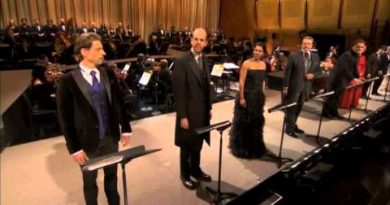MUSC: Hamlet
Melbourne University Shakespeare Company are doing a brave thing over at The Guild Theatre by taking on Hamlet they tackle, perhaps, the Bard’s most well known play. It’s huge, unwieldy and it has been done to death. But you know what, they do an ok job.
I’ve a bad history with Hamlet. Like most of Shakespeare, it could do with a cut or it’s an outrageously long play. And when you ask an audience to sit through three hours plus of any production, it better be engaging. So before I got there, there was bad news: three hours plus, not including interval.
It doesn’t hold up to three hours. However, the problem isn’t the creative team’s (led by director Felicia King) refusal to cut the text. The text is cut well, done in a charmingly creative manner at times with scenes shifting places or lines being attributed to new characters. The problem of length here brings King and actors into fault, particularly Hamlet (Rachel Shrives). It’s terribly paced and riddled with a constant amount of pauses that felt like they added a self-indulgent hour alone.
Other than the huge issue of pacing, Shrives does a solid job with Hamlet. She tackles the role with a refreshing gusto and brings quite a bit of life to the dull Dane. The gender swap also works remarkably well. Hamlet, particularly the young Hamlet, makes sense when played by either a male or female performer. I personally heard an audience member say, “I’m going to struggle to see Hamlet as male ever again” and I understand why.
Shrives is also supported solidly by the cast. Particular kudos must go to Nick Langford for his stunning Claudius; I found myself waiting for the moments he came back on stage. He was engaging, powerful and flawed all at once – it was a great.
But the highlight is Ophelia. In the text she is at best two-dimensional and at worst barely a concept of a human. Portrayed admirably by Seren Oroszvary, Ophelia is born anew. She is engaging, fascinating and wonderfully crafted into a fully realised and beautiful character. However, it seems to have come with a cost. Whether related or not, Ophelia’s blossoming as a character seemed to trigger the loss of Gertrude (Emma Lou). Where Ophelia gained depth and insight Gertrude became shallow and uninteresting. She seemed to exist more from abstract notions then from text and while Lou’s performance wasn’t bad, in any way, Gertrude simply wasn’t there.
The last Hamlet I saw made me angry, and while this one did not renew my faith in the play, it made me less scared to see it again.


